Gastritis – the term refers to all conditions resulting in damage to the inner wall of the stomach, i.e., the mucosa. Inflammation can occur as a result of various factors. Internal as well as external. Regardless of the cause of inflammation, the mucosa is congested and swollen.
Symptoms vary depending on whether it is acute or chronic inflammation. Untreated gastritis can lead to complications. It is possible to develop gastric ulcers, gastric cancer, or mucosal atrophy. Various treatments effectively restore the normal function of the stomach.
The stomach is part of the digestive system. This organ is located in the upper abdominal cavity. On the left side, under the diaphragm. Its primary role is to digest food. The stomach digests what we eat and transforms food into pulp. As it eats and digests, it can increase in size.
The abdomen is made of muscles and is covered with a gastric mucous membrane. The mucosa is essential for the stomach to work properly. It has two main functions:
The mucous membrane completely covers the inner walls of the stomach. It produces gastric juice, killing bacteria and destroying food components' cellular bonds. The mucosa also aims to protect the stomach walls from the aggressive effects of gastric acid.
The membrane produces mucus that inhibits the action of hydrochloric acid and enzymes on the stomach walls. When the mucosa is damaged, these functions may not function properly, and the stomach is exposed to harmful pathogens.

Gastritis can be divided into two types, determining the inflammation's specifics. Symptoms of gastritis can appear suddenly and last for a reasonably short time. Then we speak of acute gastritis. Another type is chronic gastritis. Then the symptoms persist for months or even years. Thus, gastritis can be divided into:
In acute inflammation, symptoms appear suddenly. The main sign is severe pain in the abdominal area. Acute gastritis can pass on its own but can also take on a chronic form. Similar symptoms can characterize chronic gastritis, although they usually have a milder form. Much more often, the regular type of inflammation is asymptomatic![]() .
.
Gastritis can have various causes. The factors are divided into external and internal. Gastritis occurs due to weakening or damage to the gastric mucosa. This causes further damage and inflammation. There are several risk factors for damage to the gastric mucosa. Determining the cause is crucial in determining the appropriate treatment method and proper habits.
Gastritis often occurs when the stomach is infected with the Helicobacter pylori bacterium. This type of bacteria damages the gastric mucosa by producing enzymes. Infection occurs through the digestive route – for example, by kissing an infected person or by insufficient hygiene associated with eating. Not every H. pylori infection results in gastritis. Gastritis can also occur due to other conditions, viral or fungal. Therefore, food poisoning can also lead to gastritis.
Another cause is autoimmune inflammation, which has a chronic form. It is a rare hereditary disease. It involves the immune system not working correctly and attacking the gastric mucosa. This gradually leads to its devastation. Autoimmune gastritis can sometimes lead to anemia, which can sometimes take a severe form. Unhealthy habits can also increase the risk of gastritis.
Regular alcohol consumption is harmful to the proper functioning of the stomach. Alcohol increases the production of hydrochloric acid, which irritates the gastric mucosa. This can result in local inflammation. Other foods are bad for the digestive system and can upset the stomach. Therefore, an improper diet can also cause inflammation.
Moreover, non-steroidal anti-inflammatory drugs![]() are damaging to the stomach. Long-term use of these anti-inflammatory drugs reduces mucus production. The walls of the organ are protected to a lesser extent from the effects of hydrochloric acid. These drugs also negatively affect the state of the intestinal microflora.
are damaging to the stomach. Long-term use of these anti-inflammatory drugs reduces mucus production. The walls of the organ are protected to a lesser extent from the effects of hydrochloric acid. These drugs also negatively affect the state of the intestinal microflora.

Inflammation of the stomach can occur as a result of surgery or trauma. Also, severe stress disturbs the stomach. Nervous tension results in sensitization of the gastric mucosa to digestive acids. Under the influence of adrenaline, digestive acids are secreted in more significant quantities, which irritates the mucosa.
The severity of symptoms depends mainly on the type of gastritis. In the acute state, symptoms appear suddenly and are severe. The pain is intense; various gastrointestinal symptoms are quickly noticeable. In contrast, these symptoms can also occur in chronic gastritis but in a much milder course. The pain is weaker and lasts longer, so the sufferer can get used to these conditions.
Some symptoms are more difficult to see because they do not cause such severe discomfort. Also, experiencing the disease without symptoms is possible. General symptoms of gastritis include:
The most common symptom is pain![]() , which occurs in the upper abdomen. The pain is accompanied by stomach tightness and an unpleasant burning sensation in the acute course.
, which occurs in the upper abdomen. The pain is accompanied by stomach tightness and an unpleasant burning sensation in the acute course.
In addition, there may be various gastrointestinal symptoms, nausea![]() leading to vomiting, in which blood can be seen. Also, the stool may turn dark in color by the blood content. This is a sign of bleeding in the stomach, as gastritis can promote the formation of ulcers.
leading to vomiting, in which blood can be seen. Also, the stool may turn dark in color by the blood content. This is a sign of bleeding in the stomach, as gastritis can promote the formation of ulcers.

Diarrhea![]() and bloating may also occur. Long-term inflammation leads to a gradual atrophy of the normal gastric mucosa. Thus, to a decrease in gastric juice secretion, i.e., acidity. Indigestion symptoms may then appear. The unpleasant symptoms cause loss of appetite and fatigue. You may also notice a feeling of satiety, even after small meals.
and bloating may also occur. Long-term inflammation leads to a gradual atrophy of the normal gastric mucosa. Thus, to a decrease in gastric juice secretion, i.e., acidity. Indigestion symptoms may then appear. The unpleasant symptoms cause loss of appetite and fatigue. You may also notice a feeling of satiety, even after small meals.
Depending on the nature of its course, gastritis can cause many vigilance-enhancing symptoms in patients. In the acute period of the disease, it is easier to notice symptoms, influencing faster diagnosis. The chronic type can be underestimated, leading to complications.
Various diagnostic methods are used to identify gastritis. Medical history is the first method, but it does not accurately determine whether there is inflammation, irritation, or poisoning. Several diagnostic tests are therefore required to rule out other disease entities. Tests used in the diagnosis of gastritis include:
The basis for determining gastritis is gastroscopy![]() . This examination can accurately assess the condition of the mucosa and take sections for histopathological examination. During this examination, a sample of gastric juice can also be taken to determine acidity, mucus, enzymes, and muscle fibers.
. This examination can accurately assess the condition of the mucosa and take sections for histopathological examination. During this examination, a sample of gastric juice can also be taken to determine acidity, mucus, enzymes, and muscle fibers.
In addition, a test for the Helicobacter pylori bacterium is essential. Its presence confirms the cause of the bacterial infection. A contrast study of the esophagus and stomach can also be performed to clarify the location and depth of lesions. A general blood test and a stool test are recommended to assess the patient's condition and rule out anemia.
If autoimmune gastritis is suspected, serological tests are performed. These tests detect autoantibodies. Also, concurrent gastrointestinal pathologies can be seen by ultrasound of the hepatobiliary system.
The choice of treatment depends on the cause of gastritis. Some cases of gastritis resolve without treatment. Others require treatment through lifestyle changes or medication. However, the problem should be considered, as untreated gastritis can lead to severe complications. Remedies for gastritis include:
If Helicobacter pylori infection is found, a specialist may recommend antibiotic therapy. It is also common to take proton pump inhibitor medications, which can help relieve gastritis symptoms by reducing stomach acid production. In addition, causal treatment – that is, eliminating the cause – is essential.
If the inflammation is triggered by taking medications or excessive alcohol consumption, it is necessary to change habits. On the other hand, lifelong administration of vitamin B12![]() is essential in autoimmune gastritis. Surgical treatment may be used in more severe cases, such as those who have undergone surgery with partial stomach removal.
is essential in autoimmune gastritis. Surgical treatment may be used in more severe cases, such as those who have undergone surgery with partial stomach removal.
Diet can significantly affect the function of the stomach. Care should be taken during the disease to ensure adequate hydration, as frequent vomiting and lack of appetite can cause dehydration.
Also, it is advisable to limit alcohol consumption, cigarette smoking, and eating meals that strain the digestive system. Spicy foods and coffee can irritate the gastric mucosa. Also, exclude foods rich in fiber and legumes, which cause bloating. Patients who eat irregular meals![]() and have a habit of eating too fast
and have a habit of eating too fast![]() are also at risk of increasing the intensity of gastritis symptoms.
are also at risk of increasing the intensity of gastritis symptoms.
In contrast, easily digestible foods are acceptable. Therefore, gastritis patients should avoid fried foods and eat cooked foods instead. Low-fat foods are advisable. These can include dairy products or lean meat. These foods reduce the secretion of gastric juice and do not irritate the gastric mucosa. Eating more small meals throughout the day would be best not to burden the stomach.

Gastritis may disappear on its own, but for this reason, its symptoms should not be ignored. Untreated inflammation can lead to the development of very dangerous disease entities. These complications of gastritis include:
Gastric ulcers – during gastritis, the protection of the stomach walls is impaired. Hydrochloric acid and enzymes irritate the stomach. Erosions may also form. These erosions can penetrate deeper into the gastric mucosa and develop painful ulcers.
Stomach cancer – especially when the risk of developing cancer is higher, primarily when H.pylori bacteria cause gastritis. Stomach cancer is malignant and can end in death. The initial symptoms of stomach cancer are non-specific – including abdominal pain and other gastrointestinal symptoms.
Mucosal atrophy – prolonged inflammation leads to the gradual disappearance of the normal gastric mucosa, thereby reducing the secretion of gastric juice. The result is gastric insufficiency or an increase in the pH of the stomach. Acidosis can precede stomach cancer for many years, so it is essential to control this condition.
Anemia – chronic inflammation of the gastric mucosa can lead to an insufficient supply of nutrients. When the body is deficient in iron, it leads to anemia. The most dangerous are sudden and heavy bleeding, in which anemia and its associated symptoms build up rapidly.
Gastritis is a common inflammatory condition characterized by its acute or chronic nature. In its course, there is damage to the gastric mucosa. Many external and internal factors can cause gastritis. It is often associated with a bacterial infection. The main symptoms are severe pain, a feeling of nausea, and a vomiting reaction.
Many diagnostic tests are therefore required to rule out other disease entities. The diagnosis is determined by analyzing clinical and endoscopic images. There are various treatments for gastritis, but the most important is eliminating the cause. It is possible to cure gastritis completely. If the inflammation is not treated, it can cause complications.
Table of Contents
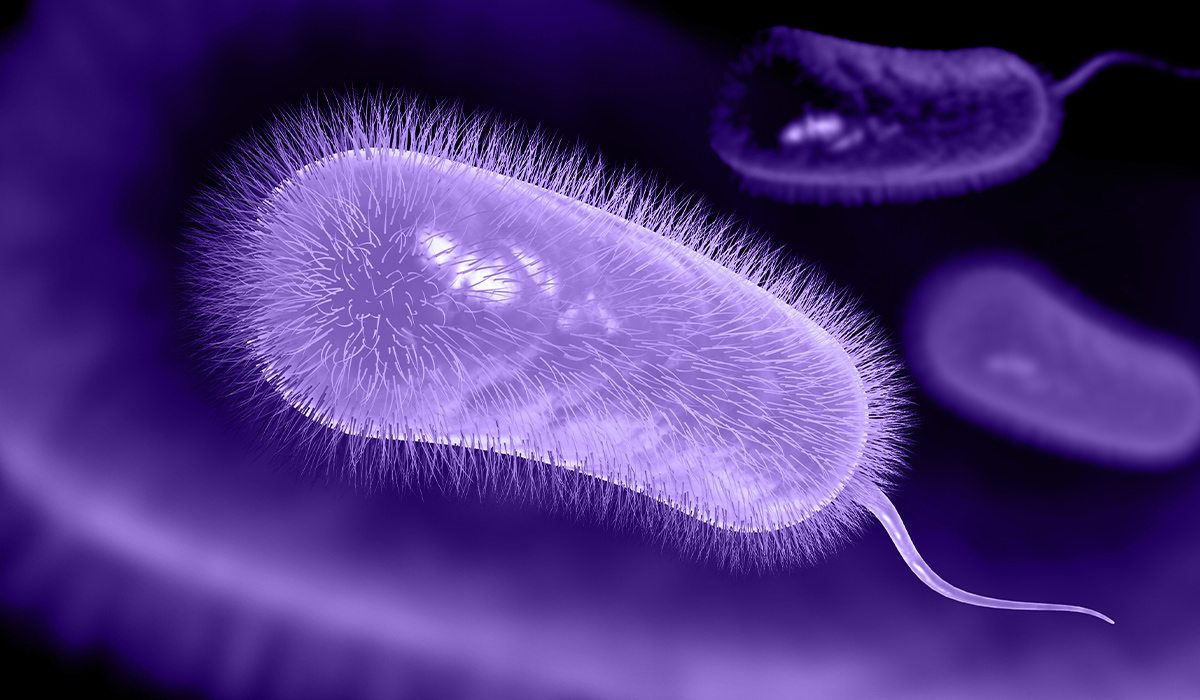
H. pylori is a pathogenic bacterium. Untreated bacterial inflammation can lead to stomach cancer. Learn about treatment methods for Helicobacter… read more »
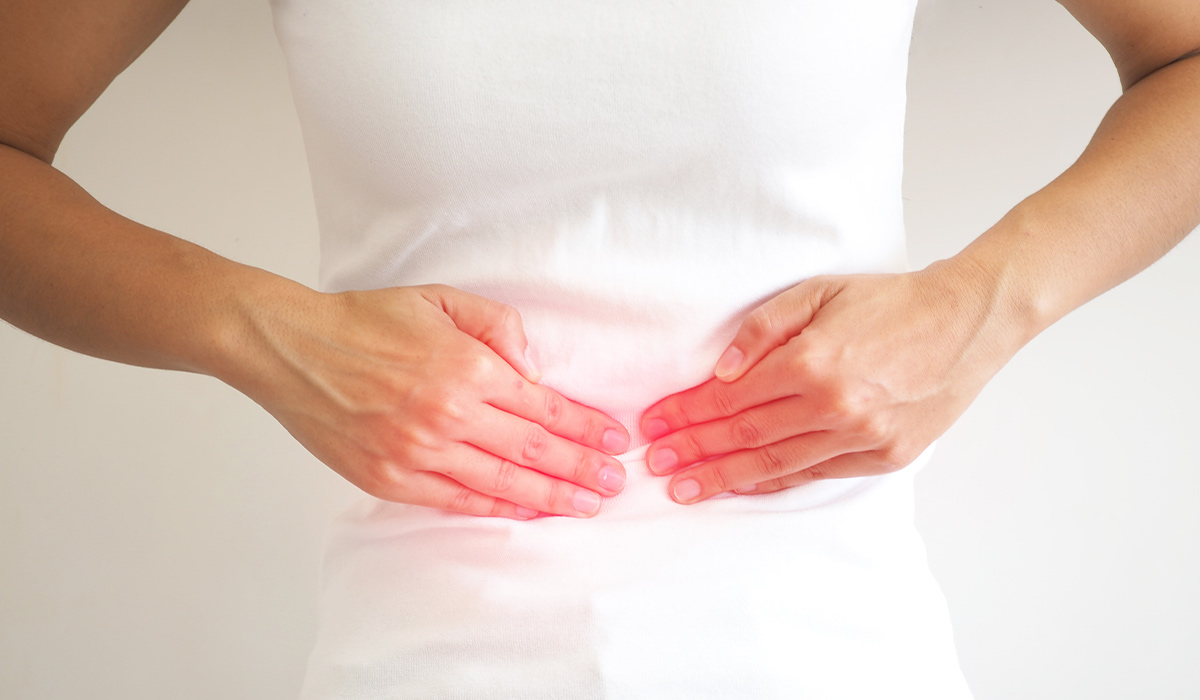
Stomach ulcer symptoms are easily recognizable. However, sometimes the disease is asymptomatic. See how to recognize stomach ulcer disease and… read more »

A gastroenterologist deals with the diagnosis and treatment of diseases of the human digestive system. What does a visit to… read more »
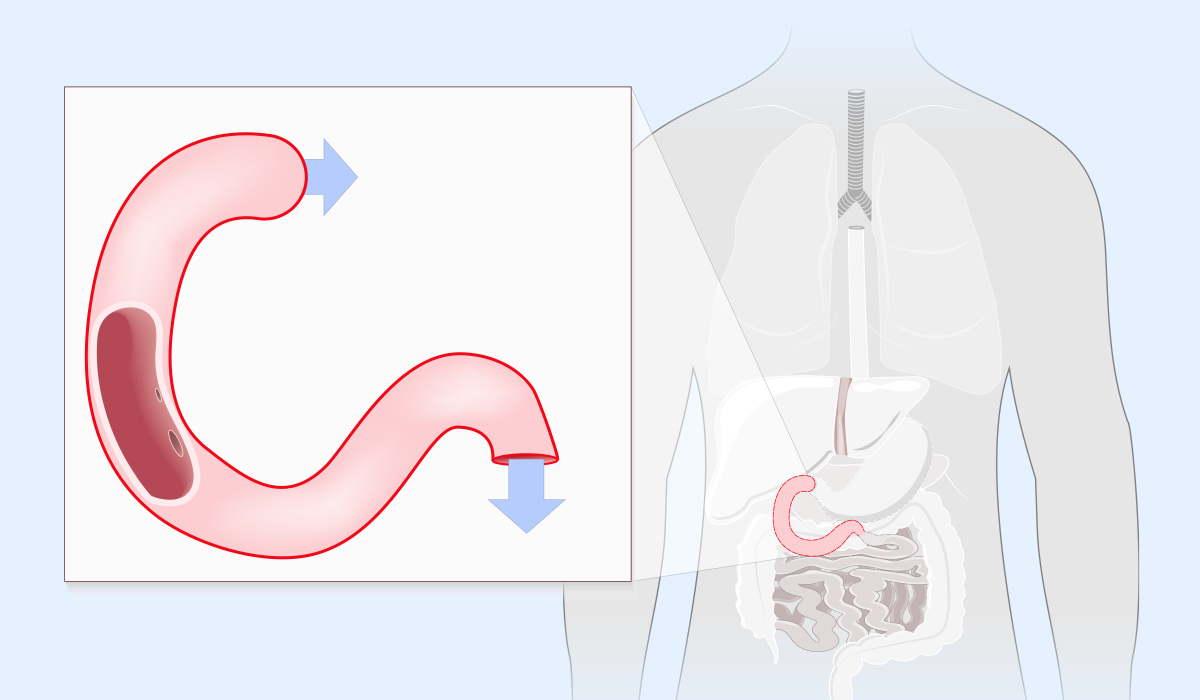
The duodenum is an important organ with useful functions. Find out how to recognize duodenal problems that herald disease. Learn… read more »
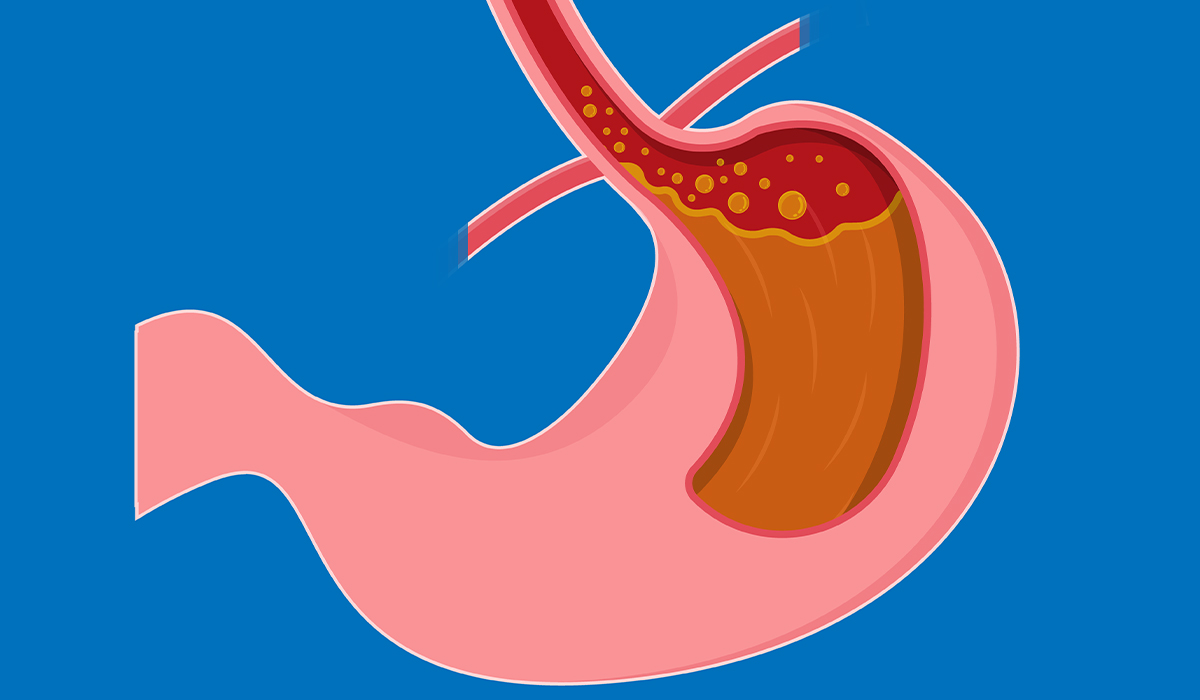
Zollinger-Ellison Syndrome is a condition that can cause uncharacteristic symptoms. Treatment is important as the disease can be fatal. Learn… read more »
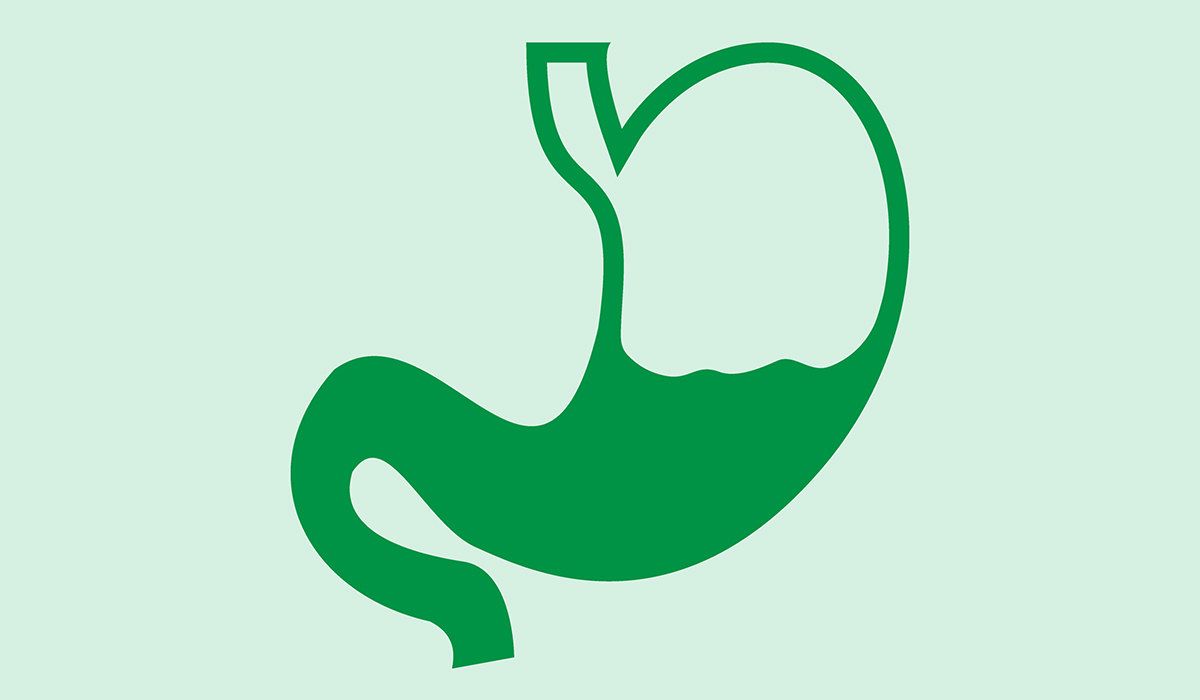
Gastroparesis is a disorder of the motility of the stomach. The disease causes many unpleasant symptoms. Find out how to… read more »

What should you eat to prevent vitamin B12 deficiency? What are the most common symptoms and who is particularly at… read more »
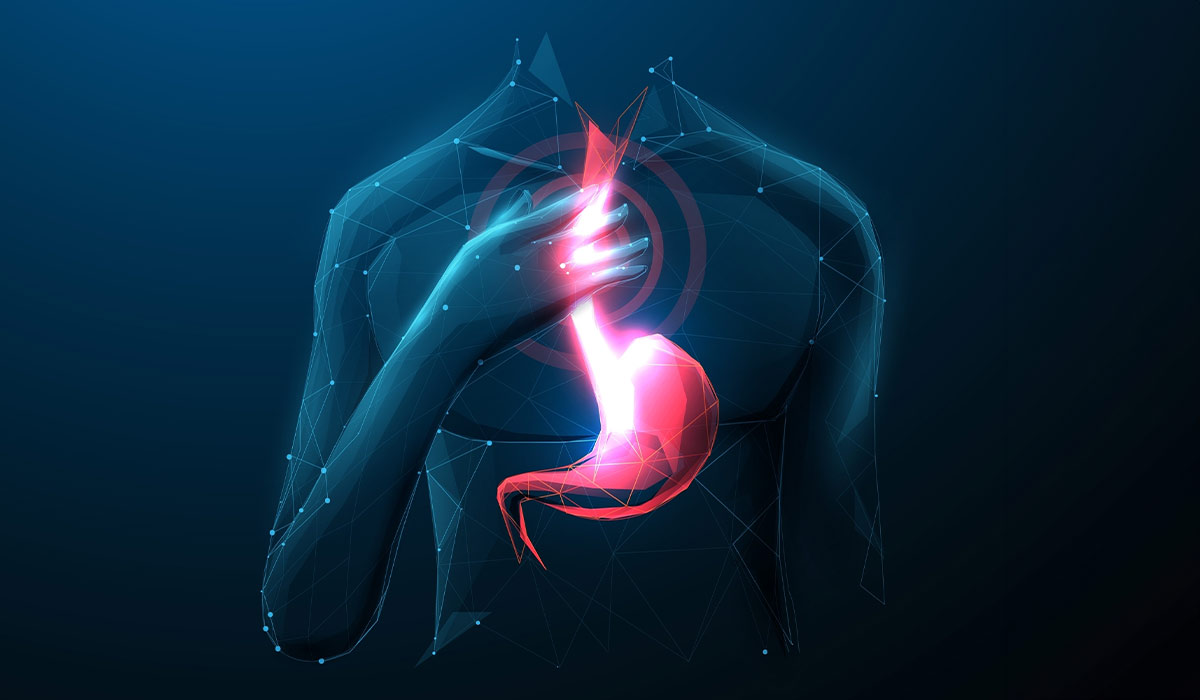
Heartburn is a common condition but it can also be a symptom of illness. Read the article and find out… read more »
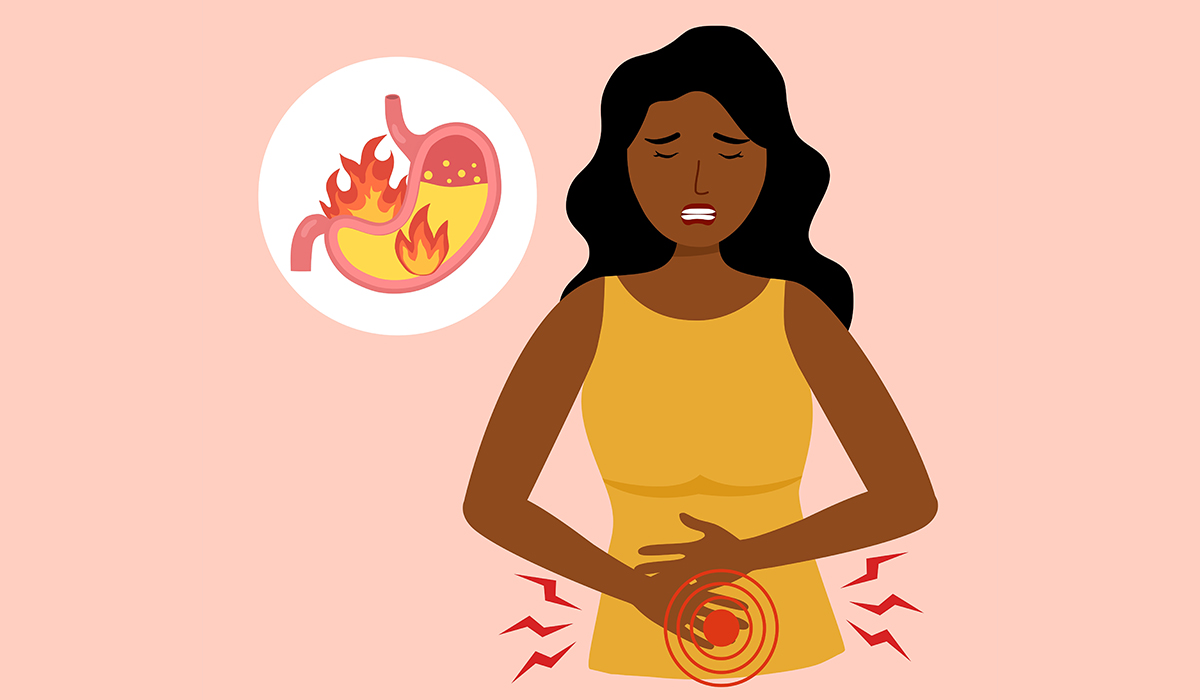
Indigestion is a set of symptoms related to problems with the digestive system. What causes this condition? What is the… read more »